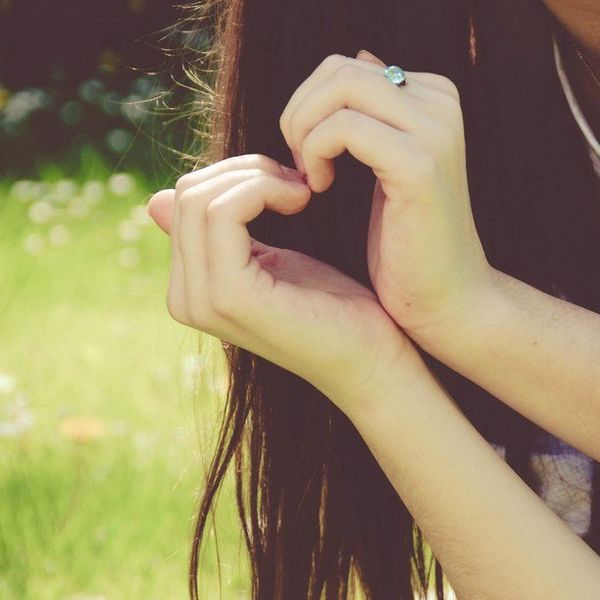I think we, by nature, believe love does not exist without ownership. A favorite poet of mine, Paulo Coelho, said that. It seems like love is supposed to be at it's strongest when one's devotion to another person is complete and absolute. Even when people describe their significant others, family, and friends, the use of possessive words is inescapable. My boyfriend/girlfriend, my husband/wife, my (insert relation here), and even those dating people in the military refer to them as my Marine/sailor/soldier/etc... Hell, when my Marine graduated, the Corps presented the newly graduated recruits like how Oprah gives out cars.
Besides being a necessary part of grammar, this still shows a lot about how we treat love. Honestly, it makes sense. When you date someone, you take ownership of their heart. You have a responsibility to take care of and attend to the heart that was given to you. You expect them to stay loyal to you. You feel like they owe you their time, effort, and affection as if love is how you show gratitude. It's a cynical way of looking at it but sometimes we love people like we love our dogs. We think they're hella cute, we want them to stay with us for as long as possible, we take care of them, we think we know what's best for them and we hate it when they get away. We lay claim to people but in the most loving and genuine way possible. But what makes this maybe a little bit less ethically upsetting is that our loved ones treat us the same way.
But that's what love is supposed to be about, isn't it? Giving ourselves to somebody else? Depending on and trusting another person? What does love look like if it's not selfless?
I can't give any reliable evaluation but I think it's a mixture of selflessness and selfishness. For starters, when two people love each other without ownership, they don't fuse. They become tethered, but the line between their lives, personalities, and hearts is distinct. But distinct sounds a lot like distance and separation, which brings me to "selfishness." It is selfish because you are your own. It's not the kind of infatuation that makes you forget your own name or makes you leave behind the college you wanted to go to for the one that was closer to him/her. When you love in this way, you're saving some of you for you. Yes, it might mean that you're being self-centered and you're not as invested in the relationship. But keeping your sense of self and knowing who you are might ensure your survival, should they leave you. And when you're together, you will understand that you don't have to know everything about them or be a part of everything. It's a symbiotic, not a parasitic relationship.
The selflessness part really shows itself when the time comes where they will go off and prosper and you will not. Your destinies and interests may not converge but that doesn't mean you can't spend some time on each other's paths. You sharpen each other's sword; making each other better but never seeking to change who they really are. And somehow, even though they do not belong to you, you can't help but feel pride whenever they accomplish something, do well, or even exist. Like, their very presence just brightens up your world purely because they are who they are. Sure, you might feel like it's more admiration than actual love. But admiration is an essential part of the real thing, possession is not. You're allowed to see them as a separate entity while still feeling like you would do anything for them.
And if I seem biased towards a merely different, not better, approach to love it's because I am. I believe that our intrinsic greed and desire to control makes love with ownership unstable. And it's not just romantic relationships that I see this. A lot of the times, this well-intentioned possessiveness shows itself in parent-child relationships. The parent feels that since they are responsible for giving their child life and sustaining it, that they are owed love, gratitude, and loyalty. Which is reasonable. But when that relationship becomes unbalanced, the provision of essentials because a bargaining piece and every time the child doesn't act like the parent would, it's considered betrayal and rebellion.
This kind of love can manifest itself in many different relationships. It's rare and hard to do, but it's this kind of unconditional love that I strive for. Love shouldn't mean handing over your leash to somebody else or taking responsibility for a life that isn't your own. If you are in a relationship with someone and there is no freedom, then that bond that was supposed to be built on mutual trust is instead built upon dependence. So fall in love with someone because of who they are, not the person they would be if they were yours.




















